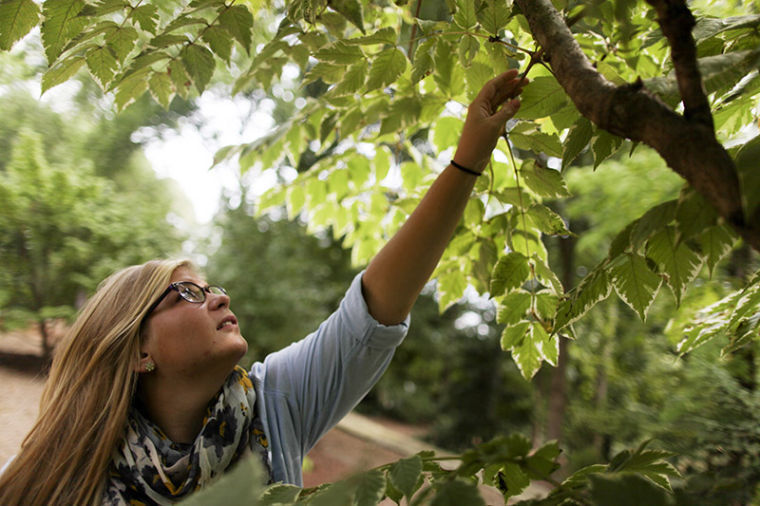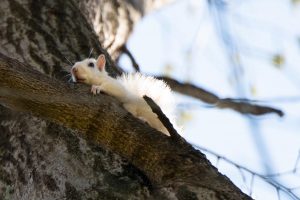Baker Arboretum provides beauty, learning opportunities for students
September 23, 2013
Sprawling across acres of hillside is a little-known attraction of Bowling Green — The Baker Arboretum is more than a garden. It’s a laboratory where WKU students tackle obstacles in nature every day.
The garden was established in 1982. Its current span reaches 15 acres.
Martin Stone, an associate professor of agriculture, is a guardian to this place, where he works with students each week helping them acquire valuable skills, planting and caring for the plants and trees.
The vegetation is tracked through a GPS mapping system created in collaboration with the geology and geography departments.
“Designing with plants is difficult because it’s like problem solving in four dimensions,” Stone said. “You’ve got height, width, depth and then time as the fourth dimension. So you’ve got to think about what these plants will look like when you install them and what they will look like five years, 10 years, 50 years and sometimes, 200 years from now.” The arboretum hosts more than 1,500 varieties of trees, shrubs and plants, which are studied and cared for by students and ground workers.
Evansville, Ind. senior Allyson Davis has worked at the arboretum since April.
“Nature is just really cool,” Davis said. “You can plant some in the shade and they will do a certain way, and you plant in the sun and they do something completely different.”
Hundreds of people come from all over the world to visit the expansive collection, which showcases an impressive variety of Japanese Maples.
There is also a variety of Ash trees, whose existence is being threatened with the southern migration of the Emerald Ash Borer. The insects are currently destroying trees in the Nashville area, while students prepare to confront this swarm of pests.
Working with the economics department, research is being conducted to decipher if monetary losses would be worth combating the insects. If the trees are to be saved, an environmentally safe systemic insecticide will be used, Stone said.
Beyond the plethora of routine agricultural maintenance, students are gaining valuable experience in bench grafting techniques. This is where the cambium layers of trees are manipulated to grow into the stable stocks of others.
Knowledge of this arduous process gives WKU students a competitive edge in the world of agriculture.
“The Baker Arboretum brings in a grafting expert or two and supplies all the materials,” Stone said. “We’ll graft 800 trees in two days. Students really like that part of the class. They’re learning something that a lot of people don’t have.”
Among the plethora of Japanese Maples and golden-tipped Hollies, Stone sees value in the garden beyond realms of education and experience.
“It’s like architecture,” he said. “It’s like living art.”













